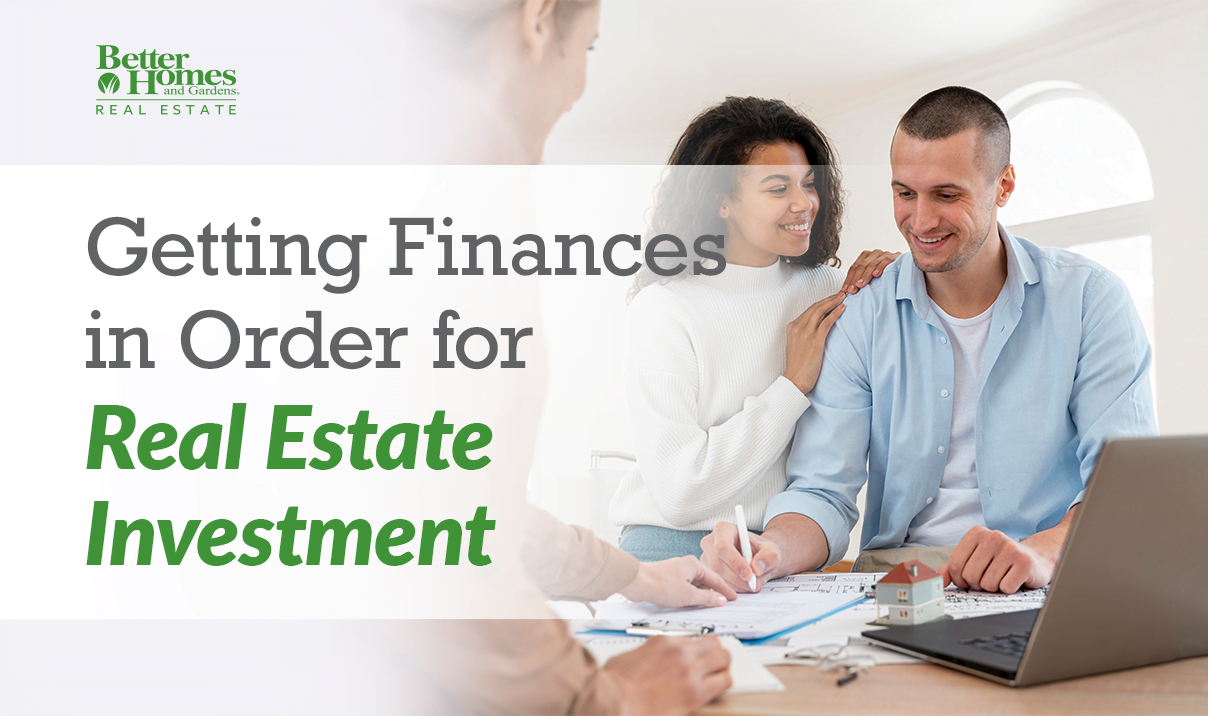
Getting Finances in Order for Real Estate Investment
Real estate investment can be a smart way to achieve your long term financial goals. But before you can jump into the world of real estate, you need to make sure your finances are sorted.
In this blog, you’ll get practical tips on how to get financially ready for property investing and we’ll answer the most common questions we hear.
Figuring out if you’re financially ready to invest
One of the first questions anyone considering property investing will ask is: am I ready?! You’re wondering what you can afford. You want to avoid overcommitting financially or waiting unnecessarily long to buy.
Am I ready to invest in property?
Whether or not you are ready to purchase an investment property depends on your income and your deposit. A deposit could be in the form of cash savings or equity in another property. To get personalised advice on whether you’re ready to buy a property, you will need to talk to a lender.
Here’s a checklist of things to consider:
- Assess your financial situation
- Decide on your investment goals
- Have a deposit in the form of savings or equity
- Do your due diligence on property choices
- Consider the cash flow
How much can I afford to spend on an investment property?
This depends on your personal circumstances, especially your income and whether or not you have a deposit saved. The first step is for you to assess your finances, including your income, debts, expenses, and assets. You can speak with a lender to get an accurate indication of your borrowing power.
What size deposit do I need to buy a property?
Typically you need a 20% deposit to buy an investment property. This doesn’t have to be cash, it could be equity in an existing property. Strong applicants can sometimes buy a property with as little as 5% deposit, but when your deposit is less than 20% you will usually have to pay for Lenders Mortgage Insurance.
What are the buying costs for an investment property?
It’s important you prepare for the upfront expenses of purchasing an investment property. In Australia, the buying costs are generally about 5% of the purchase price and include expenses such as stamp duty, legal fees and insurance,
Stamp duty, otherwise known as land transfer duty, is the biggest expense on top of the deposit. This is a tax levied on all property purchases and paid by the buyer. Each state in Australia has varying rates.
Can I invest in property with family and friends?
Co-ownership of a property is when two or more people buy an investment house together. This is a great option for people struggling to break into the property market and allows you to buy sooner. It’s important to weigh up the pros and cons to decide if it’s the best strategy for you.
The pros:
- Buy sooner
- Don’t have to save for a full deposit
- Can borrow more
- A good option for people on a lower income
- Opens up a wider range of property options
- Reduces ongoing costs
The cons:
- Shared decision-making which can cause conflict
- Each co-owner is liable for the entire mortgage and any other debts associated with the property. This means that if one owner cannot meet their obligations, the other owners may have to shoulder the burden.
- Exit strategy needs to be agreed upon
It’s very important that the owners have a legal agreement in place that accounts for all the potential scenarios that may arise.
For personalised advice and to find the perfect investment property for your goals. Book a FREE Consultation with property investment expert Michael Sloan.